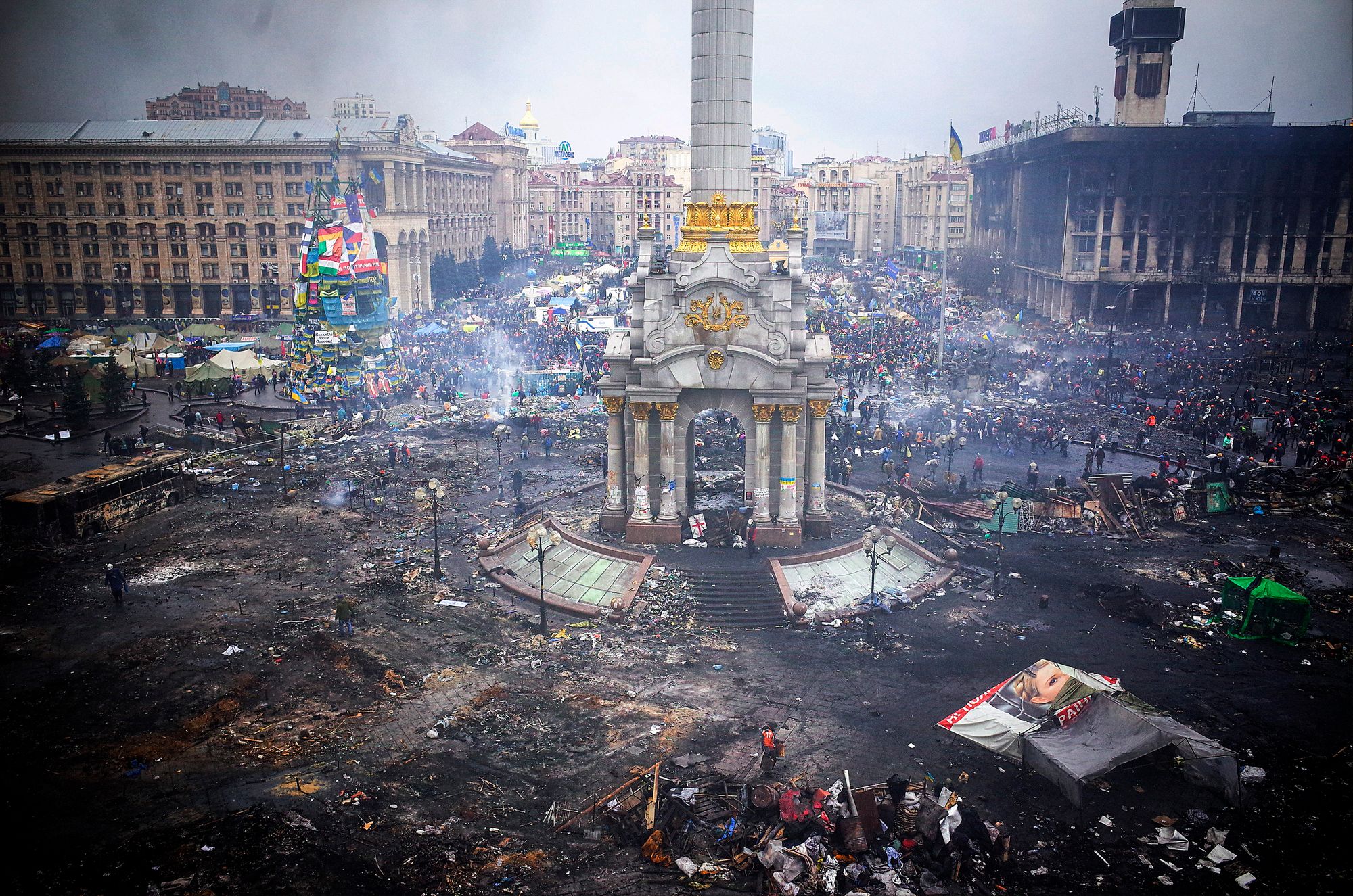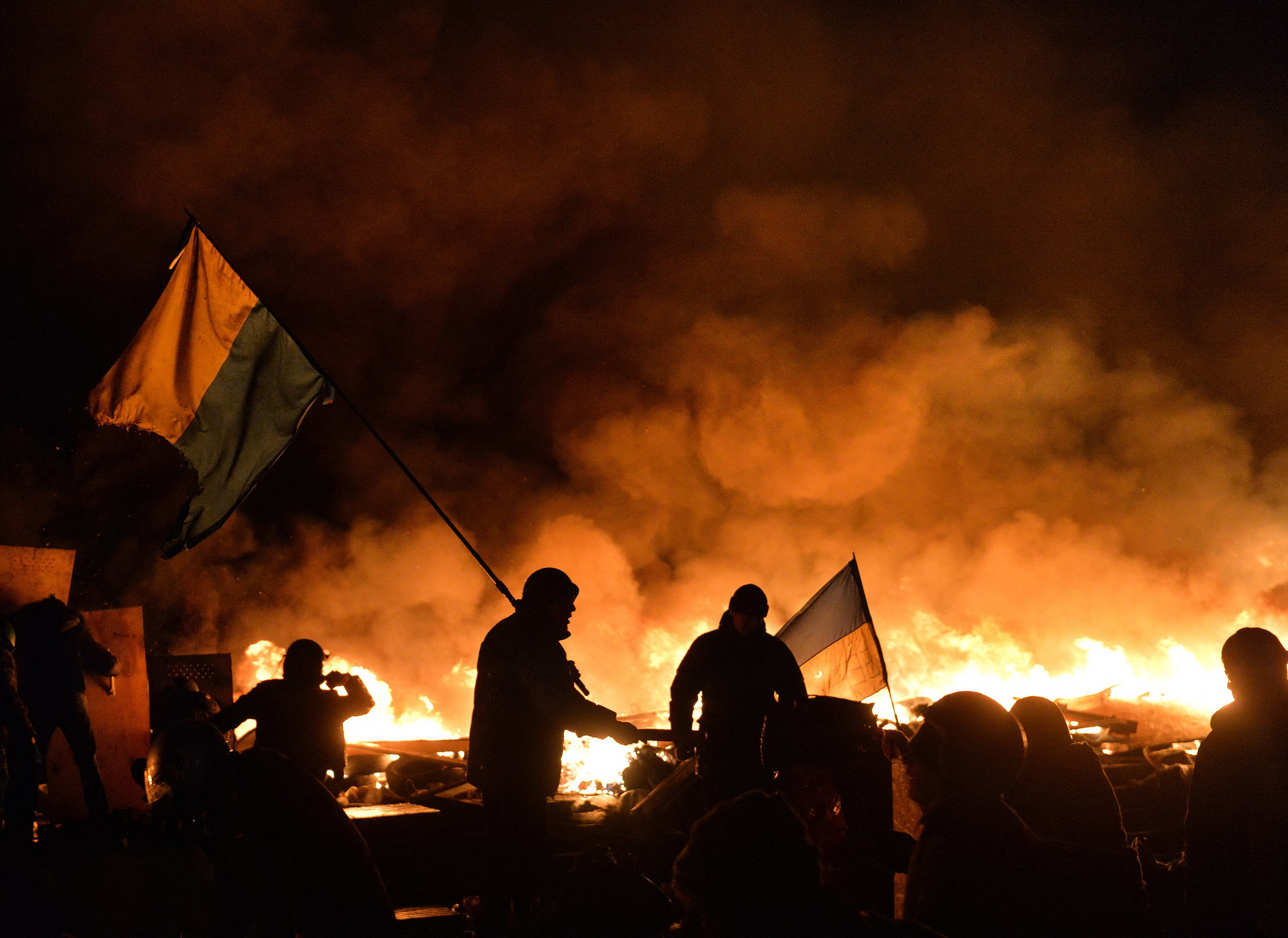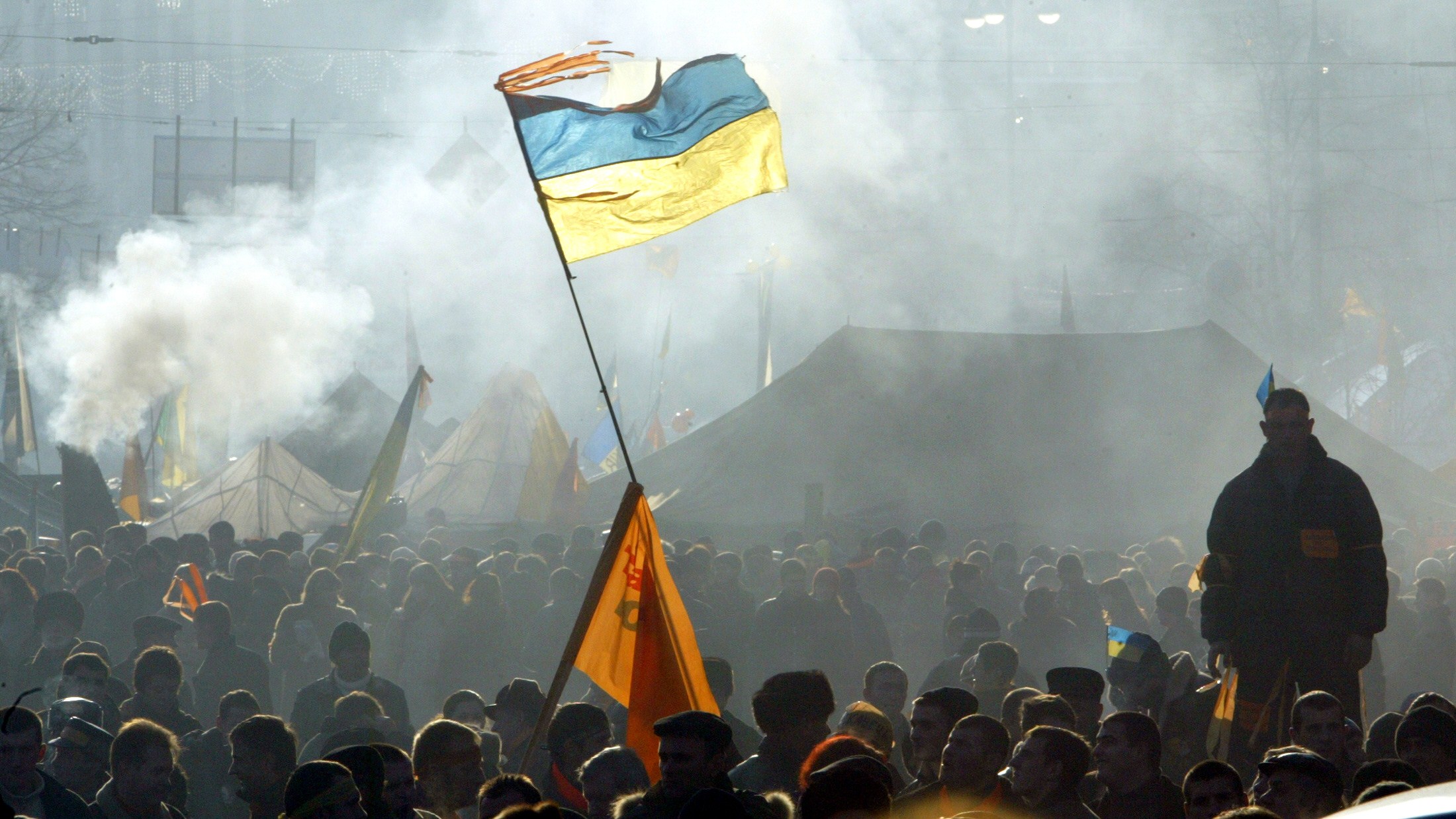Zelensky on 10th anniversary of EuroMaidan: 'It is up to our generation to determine the direction (Ukraine's history) will take'

President Volodymyr Zelensky commemorated the Day of Dignity and Freedom on Nov. 21, which marks the start of two major Ukrainian uprisings — the EuroMaidan Revolution and the Orange Revolution.
The holiday was established in 2014 by a presidential decree. Ukraine celebrates the 10th anniversary of the EuroMaidan and the 19th anniversary of the Orange Revolution this year.
Zelensky commented on the progress Ukraine has made in its fight for freedom and European integration since the EuroMaidan protests.
"Year after year, step by step, we do everything to ensure that our star shines in the circle of stars on the EU flag, which symbolizes the unity of the peoples of Europe," Zelensky said.
"Twenty years ago, it was a romantic dream, 10 years ago, it was an ambitious goal, and today, it is a reality in which it is no longer possible to stop our progress."

He expressed confidence in Ukraine's future in the European Union despite the war and all the tragedies that have befallen the country in the past 10 years, especially since the beginning of Russia's full-scale invasion.
"Years and centuries from now, when (hearing) about Ukraine as an integral part of Europe, all future generations will ask in schools: how could it have been otherwise?"
Ingrida Simonyte, the Prime Minister of Lithuania, also marked the holiday, saying that "without Ukraine, the EU family is incomplete."
"The future of Ukraine is in the European Union. The future that the Maidan fought for has finally begun," said European Commission President Ursula von der Leyen in a post about the holiday.
The EuroMaidan Revolution was sparked in November 2013 after pro-Kremlin President Viktor Yanukovych refused to sign the long-awaited Association Agreement with the European Union.
His refusal to sign the agreement led to protests throughout the country, with the largest demonstration taking place in Kyiv on Independence Square, known in Ukrainian as Maidan Nezalezhnosti.
The protests eventually transformed into a revolution that culminated in February 2014, ending with Yanukovych fleeing to Russia. More than 100 people were killed during the months-long protest turned revolution.
Ten years earlier, the Orange Revolution consisted of a series of protests, held mostly in Kyiv, which lasted from November 2004 to January 2005 in reaction to a presidential election widely seen as fraudulent.
Following reports that the Nov. 21, 2004 run-off between the pro-Western ex-Prime Minister Viktor Yushchenko and sitting Prime Minister Yanukovych were likely rigged in favor of Yanukovych, protests broke out in Kyiv and other places around the country.
In December, Ukraine's Supreme Court ruled that the obvious election tampering made it impossible to state the true winner, leading to a revote, in which Yushchenko won. His inauguration in January 2005 effectively ended the revolution.
However, the Orange Revolution is widely seen to have failed to create meaningful change or the successful implementation of far-reaching reforms to truly impact society. In addition, Yushchenko's administration had a number of other scandals, which affected his popularity and the perception that it was fulfilling the promises of the revolution.
Yanukovych ran for president again in 2010 and was elected, paving the way for the EuroMaidan Revolution.
















